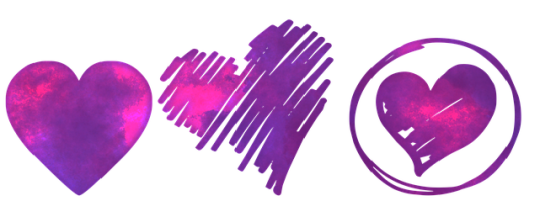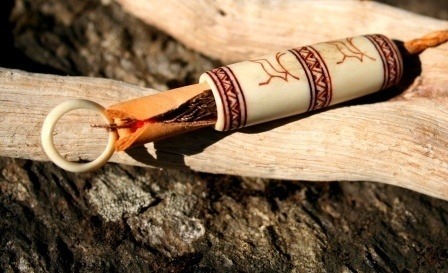Text
can beto o’rourke pls stop haunting my lesbian ass
8 notes
·
View notes
Text
Hvordan kan det ha seg at Norge, som skal være et av de mest progressive og moderne landene i verden, har beholdt en så udemokratisk, kjønnsdiskriminerende og arkaisk institusjon som monarkiet?
7 notes
·
View notes
Photo



not to sound like a jacobin bish but how has no one eaten the royals yet
68 notes
·
View notes
Photo


it’s guillotine time
72 notes
·
View notes
Note
Hi! I saw that you wanted to learn French because you will move to Canada. I don't know for Canada, but the Frecnh spoken in Quebec is really different from the Frecnh spoken in France so if you're training oral comprehension I advice you to listen the French from Quebec. Have a nice day! (I hope I don't sound rude but I'm French and it's sometimes really difficult for me to understand Frecnh from Quebec so don't be surprised if you go to Quebec for some days)
Thank you so much for the advice! I’ll keep that in mind :)
5 notes
·
View notes
Text
relative pronouns
in french, relative pronouns can be five invariable pronouns : qui (who) que (what, that…) quoi (what) dont (which) où (where) and the variable pronoun lequel (lequel, laquelle, lesquels, lesquelles + duquel, de laquelle, desquels, desquelles + auquel, à laquelle, auxquels, auxquelles).
a relative pronoun represents and replaces the noun it’s linked to and agrees with it in gender and number when variable (le pays duquel je viens : the country which i’m from).
QUI/QUE: can be used as a subject (la fille qui porte un jean rouge aime MCR : the girl wearing red jeans likes MCR), direct object (la fille que tu vois là aime MCR : the girl you’re seeing here likes MCR) or indirect object (la fille à qui tu as parlé aime MCR : the girl you talked to liked MCR).
QUOI : is always a complement and refering to an object (a thing), mostly something abstract, ex : rien, quelque chose… (c’est ce à quoi j’ai pensé toute la journée : that is what i thought about all day long).
DONT : can be a noun complement (je bois dans une tasse dont la anse est cassée : i’m drinking from a mug which has a broken handle), indirect object (le livre dont je t’ai parlé est sorti : the book i told you about is out) or adjective complement (les filles sont allées à un concert de solange, dont elles sont fan : the girls have gone to a solange’s concert, whom they’re fans of).

Où : can be an adverbial phrase of time or place (la chambre où je dors est la plus grande de la maison : the room i sleep in is the biggest in the house).
LEQUEL, DUQUEL, AUQUEL : can be a subject - rare, literary (j’ai appelé ma mère, laquelle m’a informée de ton accident : i called my mother who told me about your accident) or a complement, about things or animals (cette fête, à laquelle j’ai déjà participé l’an dernier, aura lieu à rome cette année : this event, to which i’ve already gone last year, will happen in roma this year).
they can also be preceded by ‘ce’ : ce qui, ce que, ce dont - those can mean ‘what’ or ‘which’ and replace la chose qui, la chose que, or la chose dont. ce qui (what) is the subject of the following verb. ex : je ne sais pas ce qui est tombé (i don’t know what fell down). ce que or ce qu’ (what) is used as a direct object and is generally followed by a subject and a verb. ex : ce que je te demande, c’est d’être à l’heure (what i’m asking you is to be on time). ce dont (what, which) is used as the object of the preposition de. ex : ce dont j’ai peur, c’est qu’il revienne (i’m specifically fearing him coming back).
nb : if we want to stress a point, we can use ce qui/que/dont + c’est/ce sont : ce qui me plaît le plus, c’est ta robe (what i like most is your dress).

842 notes
·
View notes
Text
So I found this cool website for learning ancient languages
go wild
306K notes
·
View notes
Text
German Vocabulary: Valentine’s Day

Der Valentinstag - Valentine’s Day
Das Geschenk - present/gift
Die Schokolade - chocolate
Die Süßigkeiten - sweets
Die Blumen - flowers
Der Blumenstrauß - bunch of flowers/bouquet
Die Rosen - roses
rot - red
Rote Rosen - red roses
Die Tulpen - tulips
Die Valentinskarte - Valentines day card
Das Parfüm - perfume
Das Gedicht - poem
Die Kerzen - candles
Das Herz - heart
Der Herzschmerz - heartthrob
Das Date - date
Die Beziehung - relationship
Der Partner - partner (male)
Die Partnerin - partner (female)
Mein Freund - my boyfriend
Meine Freundin - my girlfriend
Mein Verlobter - my fiance (male)
Meine Verlobte - my fiance (female)
Mein Ehemann - my husband
Meine Ehefrau - my wife
Der Verehrer/Der Bewunderer - admirer (male)
Die Verehrerin/Die Bewunderin - admirer (female)
Der heimliche Verehrer - secret admirer (male)
Die heimliche Verehrerin - secret admirer (female)
Die Kosenamen - pet names
Schatz/Schatzi - sweetheart
Engel - angel
Liebling - darling
Mäuschen - little mouse
Die Liebe - love
lieben - to love
Der Flirt - flirt
flirten - to flirt
Sich verlieben - to fall in love
Ich habe mich verliebt. - I fell in love.
Die Leidenschaft - passion
Die Zärtlichkeit - tenderness
Die Zuneigung - affection
Die Hingabe - devotion
Die Vernarrtheit - infatuation
Liebe auf den ersten Blick - love at first sight
Wahre Liebe - true love
Die Verführung - seduction
verführen - to seduce
Der Kuss - kiss
küssen - to kiss
Die Umarmung - hug
umarmen - to hug
Die Romantik - romance
süß - sweet
Die Freundschaft - friendship
Die platonische Liebe - platonic love
Der Amor - Cupid
Alles Liebe zum Valentinstag! - Happy Valentine’s Day!
Du bedeutest mir so viel. - You mean so much to me.
Ich liebe dich. - I love you.
Du bist wunderschön. - you are beautiful.
Es war Liebe auf den ersten Blick. - It was love at first sight.
Wir sind füreinander bestimmt. - We are meant for each other.
Ich will den Rest meines Lebens mit dir verbringen. - I want to spend the rest of my life with you.
959 notes
·
View notes
Text
Why would you need Sami and Norwegian for that?
If by some miracle you instantly became fluent in 3 foreign languages, what would they be? This includes various forms of sign language and Braille. I’d choose Spanish and French for media consumption and Russian because communism, lol.
106K notes
·
View notes
Text
If by some miracle you instantly became fluent in 3 foreign languages, what would they be? This includes various forms of sign language and Braille. I’d choose Spanish and French for media consumption and Russian because communism, lol.
#arabic russian and mandarin#because those are languages that'd be cool to know but that i won't ever bother learning
106K notes
·
View notes
Text
i have never watched skam does that make me a bad nordmann
20 notes
·
View notes
Note

bish.. if you’re a sapphic norwegian hmu immediately.
idk if you post these kinds of things, but can bi women/lesbians from norway who want to befriend other sapphics like this post? i'm a norwegian lesbian and i'd like to get to know more sapphics.
.
17 notes
·
View notes
Link
Skal dette liksom være imponerende? Kongehuset koster oss mangfoldige millioner i året. Hadde de virkelig brydd seg om fattige hadde de vært forkjempere for å avskaffe dette eldgamle systemet og heller bruker pengene på de svakeste i samfunnet, men i stedet drar de på yacht-ferier og kjøper designkjoler og designvesker til enhver anledning, så dette lille PR-stuntet er bare latterlig.
3 notes
·
View notes
Text
So apparently Norway just decided to decriminalise all drugs ... neat.
#i've never taken an illegal drug in my life#but i can't fathom why it should be illegal to tweak your conscious a tiny bit#norway
15 notes
·
View notes
Text
.... going through sami-related tags now and i’m realising there was a lot of discourse going on a few years ago. glad i missed that lol.
2 notes
·
View notes
Photo









Minoritized languages moodboard: Sami
Sami or Saami is a group of Uralic languages spoken by the Sami people of Northern Europe. They live in the Artic area called Sápmi, which is administratively divided in Norway, Sweden, Finland and Russia.
For @blackteaandlanguages
843 notes
·
View notes
Photo








The Sami people have lived in northern Scandinavia at least as long as the Norwegian, Swedish and Finnish majority, and they are therefore considered indigenous to this area. The Sami people are the minority everywhere except from Central Finnmark, Norway, where most still have Sami as their first language. Most Sami people live in Norway, but they also live in Sweden, Finland, Russia and Ukraine.
The Sami people were discriminated against for a long time, and the Sami languages were suppressed until after the Second World War. Things have changed a lot today. Sami is one of Norway’s official languages and there is no official discrimination of Sami people or languages in Norway, Sweden or Finland. Yet it is very likely that several of the smaller Sami languages will die out within a few decades because they have very few speakers. Northern Sami, however, is so sufficiently widespread that it will probably survive the foreseeable future.
5K notes
·
View notes